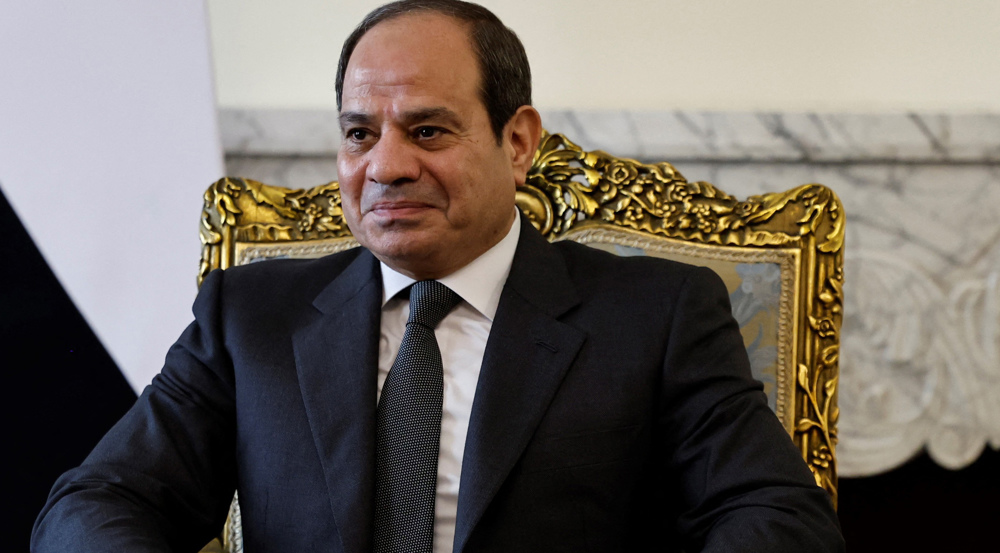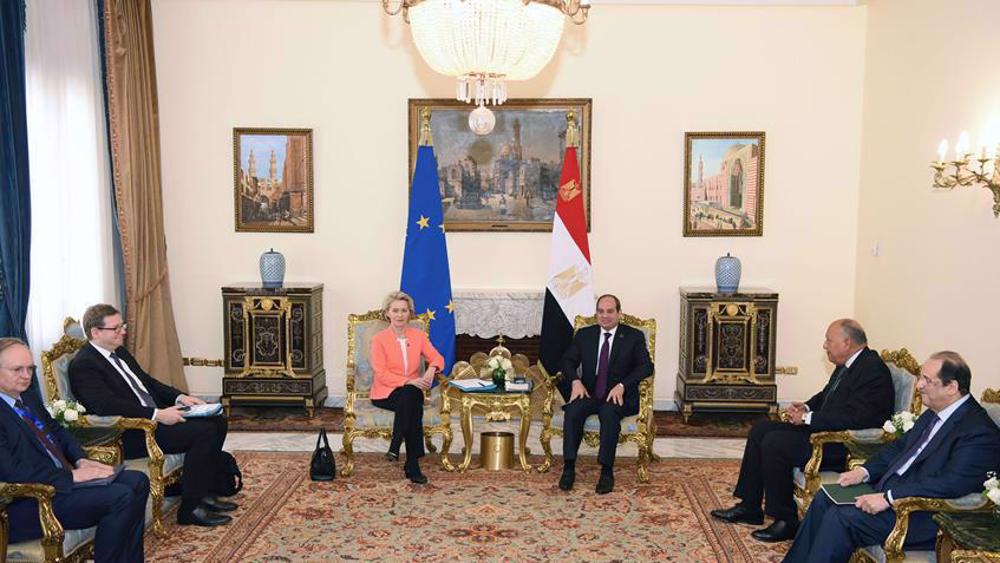IMF approves $12-billion loan to support Egypt’s economy
The International Monetary Fund (IMF) has given its final approval to a $12-billion bailout program for Egypt as the country continues to struggle with various economic challenges.
The IMF said on Friday that it would make the first payment of $2.75 billion to Egypt's Central Bank immediately, adding that the total package was meant to "restore macroeconomic stability and promote inclusive growth."
However, the state-run MENA news agency said Egypt had already received the first payment and the Central Bank now had $23.5 billion in foreign reserves, 12 million dollars less than its reserves before a wave of political changes began to sweep through the North African country in 2011. Officials have said that they aim to secure an additional $7-billion loan annually from other lenders to bring the total reserves to above $30 billion.
The IMF approval came nearly a week after officials in Cairo decided to float the Egyptian pound and ordered an increase in fuel prices. The painful measures, which could further frustrate Egypt's vulnerable population, were meant to obtain required qualifications for the IMF loan.
IMF Managing Director Christine Lagarde said days earlier that Egypt was going on a "sustainable path" to achieve job-rich growth, describing the country's reform program as "ambitious."
Egypt’s economy has suffered since long-time dictator Hosni Mubarak was deposed from power in 2011.
The government of the country’s first democratically-elected president, Mohamed Morsi, experienced a similar fate in the summer of 2013, when Morsi was ousted in a military coup led by the current president and former head of the armed forces, Abdel Fattah el-Sisi.
Terrorism has plagued the once-booming tourism sector of Egypt while people blame Sisi for wasting billions of dollars in aid from wealthy Arab states of the Persian Gulf region through launching mega projects such as the controversial expansion of the Suez Canal.
On Friday, police and security forces had a heavy presence on the streets of Cairo and other cities to defuse potential protests against the IMF-driven hike in prices. Authorities have warned against any moves that could lead to chaos by groups such as the outlawed Muslim Brotherhood.
The Arab country of 90 million people heavily relies on imports to meet not just increasing demands for staple food items but industrial components and raw material to keep the manufacturing sector going.
Cairo’s widening split with Saudi Arabia and allies over regional conflicts, such as those in Syria and Yemen, could further deepen Egypt’s economic woes. Saudi Arabia’s main oil company, Aramco, has halted the much-needed fuel shipments to Egypt.
The Sisi administration has tried to persuade the public that painful reforms would be to the benefit of the country. A main slogan of the campaign was on TV and street signs that said, "Oh, Egypt, with bold reforms, we shorten the road."
Iran, Pakistan to bring peace, stability to region through cooperation: Raeisi
'Regrettable': Iran slams EU sanctions, says bloc satisfying criminal Israeli regime
Hamas to survive as Israel fails to destroy command centers, tunnels: US media
April 22: ‘Axis of Resistance’ operations against Israeli occupation
N Korea holds first ever 'nuclear trigger' drills, simulates counterattack
VIDEO | Press TV's news headlines
VIDEO | The Rise of Palestine Action
Pro-Palestinian protests gain momentum across US universities














 This makes it easy to access the Press TV website
This makes it easy to access the Press TV website